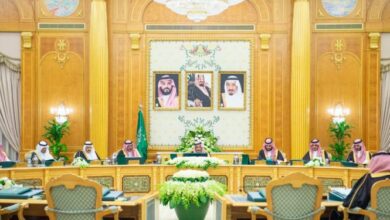International Monetary Fund: The Kingdom’s economy needs structural reform

International Monetary Fund experts stressed the need for the Kingdom’s economy for permanent structural reform, as well as diversifying resources instead of relying solely on oil.
This came in a paper that addressed the reforms required also in Russia and the United Kingdom as oil countries as well.
The paper focused on the macroeconomic effects of the reforms in the three oil-exporting countries, prepared by IMF experts Samia Bedstrom and Marco Loroso, and concluded four main findings:
1. As expected, fiscal consolidation adversely affects the Saudi and Russian economies in the short term.
Saudi Arabia can also make gains only if the decline in government spending is accompanied by tax reforms aimed at a more balanced distribution of tax burdens across agents, sectors and structural reforms that reduce nominal restrictions.
2. Given the existence of dense domestic oil production and consumption structures in Saudi Arabia and Russia, the decline in world oil prices poses a positive supply shock and could lead to an increase in production if the oil economy is as diverse as Russia.
However, the decline in the price of oil leads to a decline in government treasury revenues, which negatively affects the public finances of these two countries.
3. Analysis by IMF experts suggests that increases in productivity growth need to be accompanied by ambitious structural reforms aimed at improving labor market conditions in Russia and Saudi Arabia.
This allows them to see a strong increase in employment and a better balance of trade, leading to a much greater increase in the GDP of these two countries.
4. In the case of Saudi Arabia, the analysis of IMF experts suggests that when considering the sequence of reforms, it will be important to implement ambitious and lasting structural reforms, so that the private sector can benefit from productivity gains and diversify the economy, and on that basis further reforms can then be undertaken.
In Saudi Arabia, IMF experts say in their paper that the momentum of reform under Vision 2030 covers a wide range of measures, such as tax and subsidy reforms, increased female participation in labor and other labor market and employment reforms, and measures to remove other obstacles to private and non-private sector growth. Exports, including the development of the domestic capital market.
In Russia, experts point out that the liberalization of the exchange rate and the adoption of an inflation target, as of early 2015, have served the country well in the face of the oil price shock, while the rest of the reforms appear to be moving forward.




